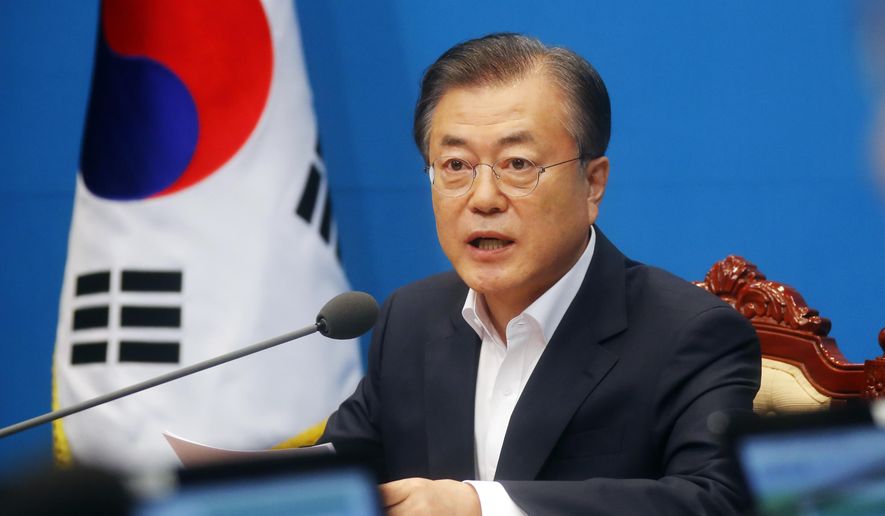SEOUL — South Korean officials say they fear that rising tensions in the Middle East could distract the Trump administration away from a key moment to seize on rare momentum in the pursuit of a nuclear deal with North Korea.
South Korean President Moon Jae-in, who will meet with President Trump next week on the sidelines of the U.N. General Assembly session in New York, has expressed optimism about a renewal of the U.S.-North Korea talks, which have been stalled since a second summit in February in Vietnam between President Trump and North Korean leader Kim Jong-un ended abruptly without a deal.
But government sources said Tuesday that the Moon administration is also concerned that Mr. Trump’s focus in New York will be on the clash with Iran in the wake of the weekend drone attacks on Saudi Arabia’s oil facilities.
“We want President Trump to focus on the North Korea matter,” said one source, who added that South Korean officials convened a behind-the-scenes meeting Tuesday to weigh the possible negative impact that the Middle East developments could have on the situation.
South Korean officials say they believe North Korea will seek by the end of the month to resume direct “working level” nuclear talks with U.S. officials for the first time since the failed Hanoi summit.
An official speaking on condition of anonymity Tuesday said there are clear signs that Mr. Kim, despite months of provocations that have including several short-range missile tests, is increasingly eager to reach a breakthrough with Washington by the end of the year. Analysts say the deal will require U.S. negotiators to embrace a step-by-step approach rather than an all-or-nothing offer — total sanctions relief in exchange for total denuclearization upfront — that Mr. Trump put on the table in Hanoi.
The recent departure of hawkish National Security Adviser John R. Bolton could open the way for the more modest, phased approach. Secretary of State Mike Pompeo and his top North Korean envoy, Stephen E. Biegun, were reportedly seeking that approach this year, only to be shut down by Mr. Bolton’s demand for a sweeping deal.
Signs of renewed personal diplomacy include a South Korean newspaper report that a letter sent by Mr. Kim to Mr. Trump in August included an invitation to travel to Pyongyang for a fourth one-on-one summit.
Mr. Trump told reporters Monday that he expected to meet with Mr. Kim sometime before the end of the year but dismissed speculation that he would travel to Pyongyang anytime soon.
“I don’t think we’re ready for that,” Mr. Trump said. “I would do it sometime, at some time at a later future.”
But South Korea’s Mr. Moon has appeared eager this week to seize on the momentum spurred by the North Korean offer.
“Changes are underway even at this moment,” Mr. Moon, long a proponent of detente with Pyongyang, said Monday.
Speaking at a weekly meeting with his aides in Seoul, the South Korean president said he will “actively endorse and support dialogue between North Korea and the United States” when he meets with Mr. Trump in New York next week.
Mr. Biegun sought to jump-start stalled talks with Pyongyang last month during a visit to South Korea. He said U.S. officials had offered to meet with their North Korean counterparts and were awaiting a response.
U.S. officials say Mr. Trump has assigned Mr. Biegun’s team to try to build on the momentum from the president’s surprise meeting in June with Mr. Kim along the Demilitarized Zone dividing North and South Korea.
North Korea’s American affairs chief at the Foreign Ministry told the state-controlled KCNA press agency that talks with the U.S. could resume in a “few weeks” — with some conditions.
“The discussion of denuclearization may be possible when threats and hurdles endangering our system security and obstructing our development are clearly removed beyond all doubt,” the statement said.
• Guy Taylor can be reached at gtaylor@washingtontimes.com.




Please read our comment policy before commenting.